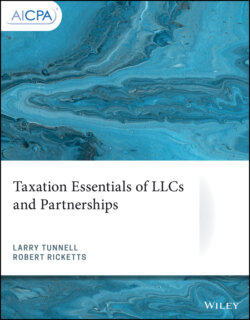Читать книгу Taxation Essentials of LLCs and Partnerships - Larry Tunnell - Страница 19
Example 1-7
ОглавлениеJ, D, and R are individual general partners in an oil and gas drilling partnership. The partners each own one-third of the first well drilled by the partnership, which was successful. However, when D and R wanted to invest a portion of the income from well 1 to drill an additional well on an adjacent property, J opted not to participate. As a result, he or she has no interest in the second well, or in any income generated by that well. That is, J has a one-third interest in the first well and zero interest in the second one. D and R each have one-third interests in the first well, and one-half interests in the second well. If the partners decide to drill a third well, they may have still different interests in that well. They might even decide to bring in another partner to the partnership to participate in drilling the third well, and the new partner may or may not be allowed to share in the profits associated with the first two wells. Each partner's share of partnership profit or loss in each property will be governed by the partnership agreement signed by all the partners. This agreement can be changed with the consent of the partners, and the sharing ratios of the partners can be revised after the fact. This degree of flexibility would be very difficult to obtain if the company had been organized as a corporation and would not be possible at all if the corporation opted to be taxed as an S corporation.5
Similarly, a partnership or an LLC may allow its investors to share differently in the risks and rewards of entity operations. Investors with varying tastes for risk may be willing to assume a greater portion of the risk of losses, while sharing profits in accordance with their contributions to capital. One partner, for example, may be willing to be allocated 50% of partnership losses, while sharing in only 33% of partnership profits. Partnerships or LLCs offer complete flexibility to the partners to enter into these kinds of arrangements. The result is that it is often easier to bring investors with different backgrounds together into a partnership or LLC than in other forms of organization.
